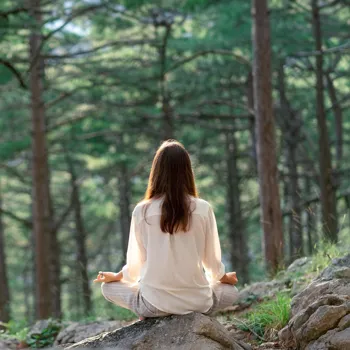Discover 10 natural ways to recharge your energy, Indian style! Feeling drained? Dive in to revitalize your vitality
Are you constantly feeling tired, even after a good night's sleep? Does the day just
seem to drag on, leaving you with zero energy to enjoy your hobbies or spend quality time with family? You're not alone! In today's fast-paced world, feeling drained is a common complaint.
But before you reach for that extra cup of chai or energy drink, consider that there are many natural and effective ways to boost your energy levels. And guess what? Many of them are rooted in traditional Indian practices!
Let's explore 10 simple strategies to help you feel revitalized and ready to take on the world, naturally.
Hydrate, Hydrate, Hydrate!
Often, the simplest solution is the most effective. Dehydration is a major energy zapper. When your body lacks sufficient water, it struggles to perform basic functions, leading to fatigue, headaches, and reduced concentration. Think of water as the fuel that keeps your engine running smoothly.
Aim to drink at least 8 glasses of water throughout the day. Don't wait until you feel thirsty – that's a sign you're already dehydrated. Keep a water bottle handy and sip on it regularly. And if you're not a fan of plain water, add a few slices of cucumber, lemon, or mint for a refreshing twist.
You can also include hydrating foods like watermelon, cucumber, and curd in your diet. Starting your morning with a glass of warm water with lemon is also believed to cleanse your system and boost energy. So, remember, stay hydrated to stay energized!
Prioritize Sleep Like It's Your Job
Let's face it, most of us are chronically sleep-deprived. We sacrifice sleep for work, social activities, or just endless scrolling on our phones. But skimping on sleep is like borrowing energy from tomorrow – eventually, you'll have to pay it back, with interest!

Aim for 7-8 hours of quality sleep each night. This is the time when your body repairs itself, consolidates memories, and recharges for the day ahead. Create a relaxing bedtime routine to signal to your body that it's time to wind down.
This could include taking a warm bath, reading a book (a real one, not on a screen!), or listening to calming music. Avoid caffeine and alcohol before bed, as they can disrupt your sleep cycle. Make sure your bedroom is dark, quiet, and cool – a sanctuary for restful sleep.
Remember, sleep is not a luxury; it's a necessity for optimal energy and well-being.
Eat a Balanced Diet – Think Wholesome, Not Processed
What you eat has a direct impact on your energy levels. Processed foods, sugary snacks, and refined carbohydrates may give you a quick burst of energy, but they're followed by an inevitable crash, leaving you feeling even more tired and sluggish.
Instead, focus on eating a balanced diet rich in whole, unprocessed foods. Include plenty of fruits, vegetables, whole grains, and lean protein in your meals. These foods provide sustained energy and essential nutrients that support your body's functions.
Don't skip breakfast – it's the most important meal of the day! A healthy breakfast helps to kickstart your metabolism and provides you with the energy you need to get through the morning. Pack healthy snacks like nuts, seeds, or fruits to avoid energy dips between meals.
Eating a wholesome diet is an investment in your long-term energy and health.
Embrace the Power of Regular Exercise
It may seem counterintuitive, but exercise actually boosts your energy levels! When you exercise, your body releases endorphins, which have mood-boosting and energy-enhancing effects. Exercise also improves circulation, delivers oxygen to your tissues, and strengthens your cardiovascular system.
You don't need to run a marathon to reap the benefits of exercise. Even a short walk, a yoga session, or a light workout can make a difference. Find an activity you enjoy and make it a part of your daily routine. Aim for at least 30 minutes of moderate-intensity exercise most days of the week.
Remember to listen to your body and avoid overexertion. Gradually increase the intensity and duration of your workouts as you get fitter. Exercise is not just about physical health; it's also a powerful tool for boosting your energy and mental well-being.
Get Your Sunshine Vitamin (Vitamin D)
Vitamin D is essential for energy production and overall health. Many people are deficient in vitamin D, especially during the winter months when sunlight exposure is limited. Vitamin D deficiency can lead to fatigue, muscle weakness, and mood changes.

The best way to get vitamin D is through sun exposure. Aim for 15-20 minutes of sun exposure daily, preferably during the early morning or late afternoon hours when the sun's rays are less intense. You can also get vitamin D from certain foods, such as fortified milk, eggs, and fatty fish.
If you suspect you may be deficient in vitamin D, talk to your doctor about getting your levels tested and consider taking a supplement if necessary. Vitamin D is a key player in maintaining energy levels and overall vitality.
Manage Stress the Indian Way: Yoga and Meditation
Stress is a major energy drain. When you're stressed, your body releases stress hormones that can deplete your energy reserves and leave you feeling exhausted. Learning to manage stress effectively is crucial for maintaining high energy levels.
And what better way to do it than through traditional Indian practices like yoga and meditation? Yoga combines physical postures, breathing techniques, and meditation to promote relaxation, reduce stress, and improve overall well-being.
Meditation helps to calm the mind, reduce anxiety, and improve focus. Even a few minutes of daily meditation can make a significant difference in your stress levels and energy levels. There are many different types of yoga and meditation, so find one that suits your needs and preferences.
Embrace the power of yoga and meditation to de-stress, recharge, and revitalize your energy.
Limit Caffeine and Alcohol Intake
While caffeine and alcohol may provide a temporary energy boost, they can ultimately deplete your energy levels. Caffeine can disrupt your sleep cycle and lead to dependence, while alcohol can interfere with your body's ability to absorb nutrients and can also disrupt sleep.

If you rely on caffeine to get through the day, try to gradually reduce your intake. Switch to herbal teas or other caffeine-free beverages. Limit your alcohol consumption, especially before bed. Remember, moderation is key.
While an occasional cup of chai or a social drink may be okay, avoid over-reliance on these substances for energy.
Take Regular Breaks – Micro-Breaks, Big Impact
Working for long stretches without breaks can lead to mental and physical fatigue. Taking regular breaks throughout the day can help to refresh your mind and body, and boost your energy levels. Get up and stretch, walk around, or simply look away from your computer screen.
Even a few minutes of break can make a big difference. Use your breaks to do something you enjoy, such as listening to music, reading a book, or chatting with a friend. Taking regular breaks is not a sign of laziness; it's a smart strategy for maintaining productivity and energy levels.
Practice Mindful Breathing (Pranayama)
Breathing is something we do automatically, but we often don't pay attention to how we're breathing. Practicing mindful breathing techniques, also known as pranayama in yoga, can have a profound impact on your energy levels.
Deep, slow breathing helps to calm the nervous system, reduce stress, and deliver more oxygen to your brain and tissues. Try simple breathing exercises like alternate nostril breathing (Nadi Shodhana) or diaphragmatic breathing (belly breathing).
These techniques can be done anywhere, anytime, and can quickly boost your energy and focus.
Listen to Your Body and Adjust Accordingly
Finally, and perhaps most importantly, listen to your body. Pay attention to your energy levels throughout the day and adjust your habits accordingly. If you're feeling tired, take a break, get some rest, or adjust your diet.

If you're feeling energetic, take advantage of it and tackle your most challenging tasks. Everyone is different, so what works for one person may not work for another. Experiment with different strategies and find what works best for you.
Remember, boosting your energy levels is not a one-size-fits-all approach. It's an ongoing process of self-discovery and adjustment.
AI Generated Content. Glance/InMobi shall have no liability for the content













